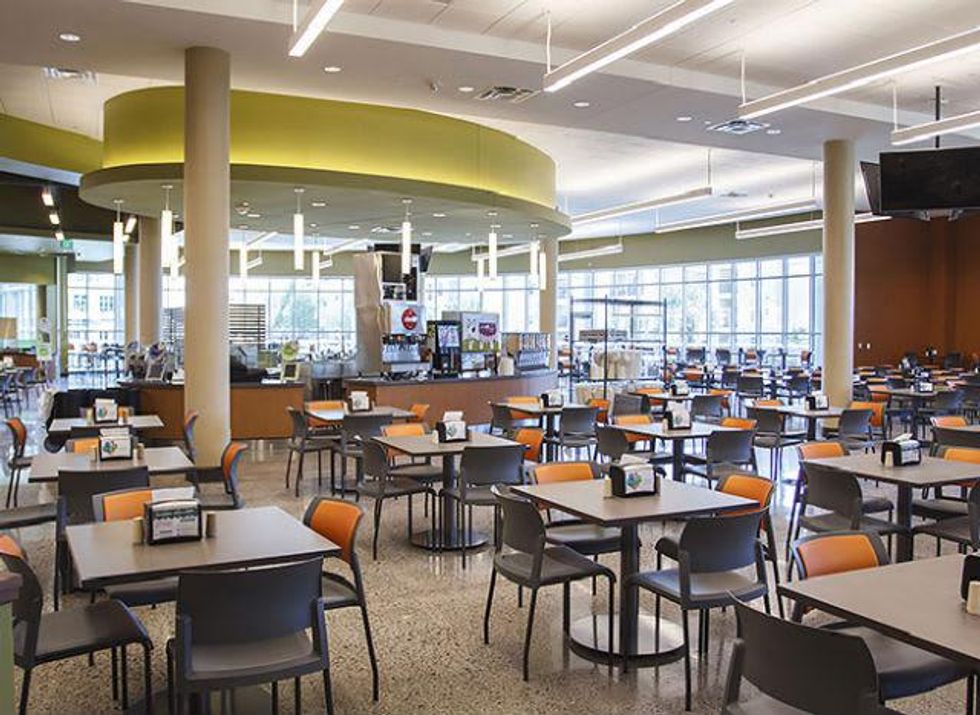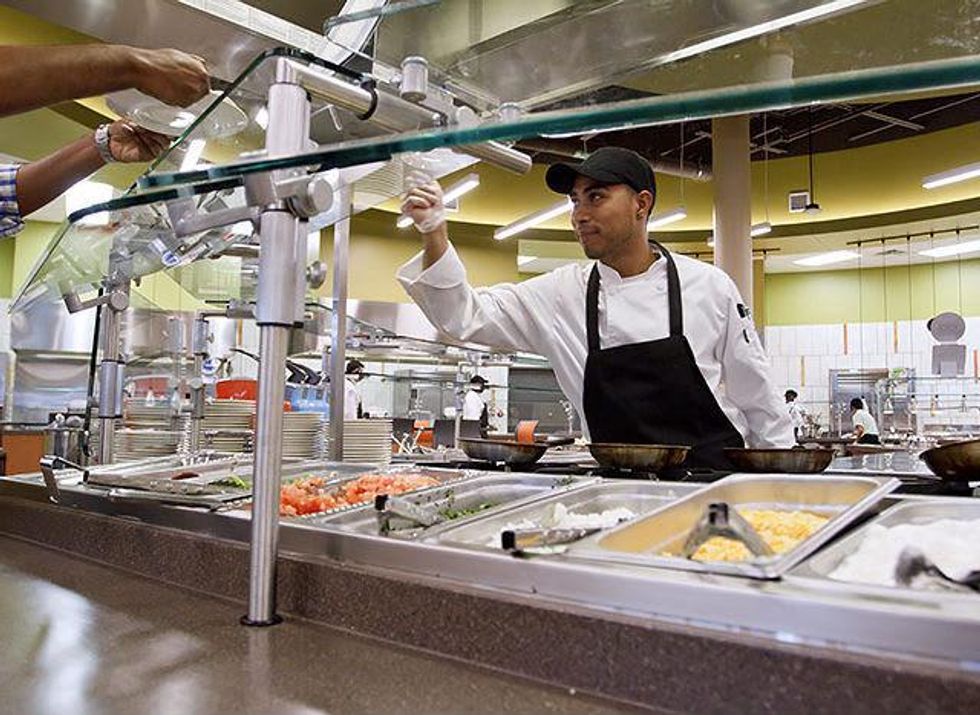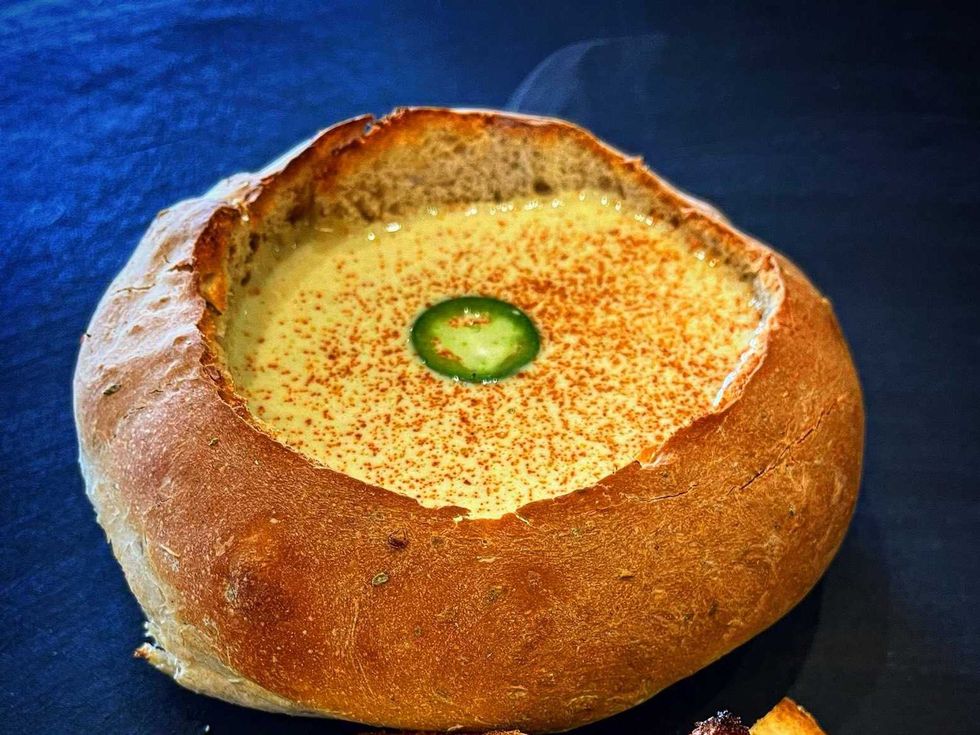Vegan Student Dining
University of Texas at Dallas reaches for top-tier status with bountiful new dining options
University of Texas at Dallas has unveiled a new residence hall and accompanying dining center that brings a wealth of new food choices, including vegan, healthy foods and late-night fare.
UTD's addition of vegan food puts it in a league with the University of North Texas, the first in the country to create an entire vegan cafeteria when it opened Mean Greens in 2011; that initiative made the national news.
UTD's new Dining Hall West will serve breakfast, lunch and dinner to students, faculty and staff from 7 am to 9 pm Monday-Thursday and 7 am to 7 pm on Friday. On weekends, brunch will be served from 10:30 am to 2:30 pm, and dinner will be offered from 4:30 to 7 pm.
"About 19 percent of our students are international, and many are vegan or vegetarian, so we're responding to their palates," says UTD's Carrie Chutes Charley.
The dining hall features cooking stations and dedicated areas for vegan, vegetarian, gluten-free and other dietary needs. Diners can choose from waffles, pasta station, salad bar, sandwiches, bakery items, frozen yogurt, espresso, wok-prepared meals and Vietnamese noodle soup.
Dining Hall West will also be home to a Papa John's Pizza and a convenience store.
"The addition of Residence Hall West, Recreation Center West, Dining Hall West and Parking Structure 3 is truly a game changer in terms of activity in the north part of campus," says Dr. Calvin Jamison, vice president for administration. "We will have nearly 5,000 students living on campus this year, and these new facilities will offer more convenience not only for residents, but for commuters and employees as well."
There's more: a pita bar with vegetarian options, sushi, made-to-order salads and spuds, Einstein Bros Bagels, Jason’s Deli and an IHOP Express. The campus now has 13 food locations with more coming in the next few months. All are open to the public.
The dining program is part of an overall expansion at UT Dallas that will not only increase the number of students and amenities on campus, but also make the university a bigger and more meaningful force in the city. The university is working toward becoming what it refers to as a "tier one" institution, a nationally competitive research university that can attract research money, hire prominent faculty, award more doctorates and place well in college rankings.
Cities with great research universities get benefits that Dallas-Fort Worth does not; for example, Massachusetts, with one-fourth the population of Texas, receives 250 percent more federal R&D funds and double the venture capital investment.
"The vision for the school has been going on for a while," says Bob Fishbein, assistant VP for auxiliary services. "You're finally seeing it come to fruition as all these things are starting to mature. Having a new dining hall attached to the new residential hall and learning facilities puts it in the same location where students live, as opposed to being across campus."
This new initiative to bring services closer is called a "living-learning community," which makes living on campus more comfortable and enticing. They're also executing a beautification program where they replace cement and concrete with trees and shaded areas.
Carrie Chutes Charley, the university's assistant director of food and retail services, says that the menu expansion is a response to the makeup of the student population.
"About 19 percent of our students are international, and many are vegan or vegetarian, so we're responding to their palates," she says. "But vegan dining is a huge trend everywhere, especially on college campuses."



 Yonx Pizza soup in a bread bowl.Photo courtesy of Yonx
Yonx Pizza soup in a bread bowl.Photo courtesy of Yonx